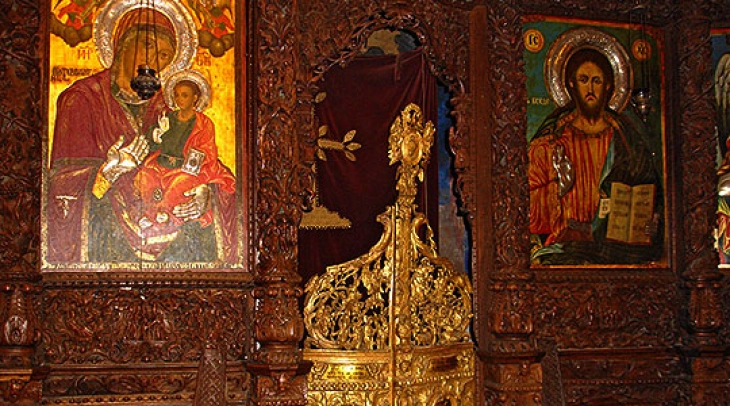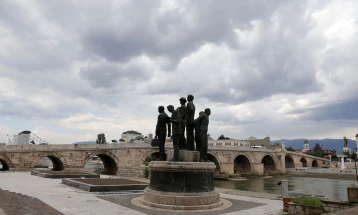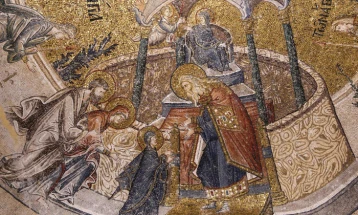Religious calendars
- Licinius, the brother-in-law of the Emperor Constantine, whose sister he had married, dissembled before the great Emperor, saying that he was a Christian.
- Post By Angel Dimoski
- 08:09, 9 May, 2023

9 May 2023 (MIA)
Macedonian Orthodox Church Calendar
The Hieromartyr Basil, Bishop of Amasea
Licinius, the brother-in-law of the Emperor Constantine, whose sister he had married, dissembled before the great Emperor, saying that he was a Christian. When he received authority over the whole of the East, he began, at first secretly but then publicly, to persecute the Christians and to uphold idolatry. His wife grieved greatly over this, but could not turn her husband back from this dishonour. Giving himself over to idolatry, Licinius gave himself over to all the passions, and especially to brutality towards women. Through this fall into such an impure passion, he desired to deflower the maiden Glaphyra, who was in waiting at the imperial court. She complained to the Empress, who sent her away from the court at Nicomedia secretly to the coast of Pontus. The maiden got as far as the town of Amasea, and was there warmly received by the bishop, Basil, and the other Christians. Glaphyra was very joyful that God had pre-served her virginity, and wrote of this to the Empress. And the Empress rejoiced and sent her money for the Church in Amasea. But one letter of Glaphyra’s, on its way to the Empress, fell into the hands of an imperial eunuch, who showed it to Emperor Licinius. Discovering where Glaphyra was to be found, he immediately sent orders that she and the bishop be brought to Nicomedia. In the meantime, Glaphyra died, and the soldiers brought only Basil, in bonds. After torture and imprisonment, this blessed man was beheaded and thrown into the sea, in the year 322. His priests, with the help of an angel of God, found his body near the town of Synope, took it out of the water with the aid of fishing nets and carried it to Amasea, where they gave it burial in the church which he had built by his labours. The Emperor Constantine raised an army against Licinius, overcame him, arrested him and sent him into exile in Gaul, where he ended his God-hating days.
Catholic Calendar
St. Christopher
Before the 1969 reform of the Roman calendar, Christopher was listed as a martyr who died under Decius. Nothing else is known about him. There are several legends about him including the one in which he was crossing a river when a child asked to be carried across. When Christopher put the child on his shoulders he found the child was unbelievably heavy. The child, according to the legend, was Christ carrying the weight of the whole world. This was what made Christopher patron saint of travellers and is invoked against storms, plagues, etc. His former feast day is July 25.







